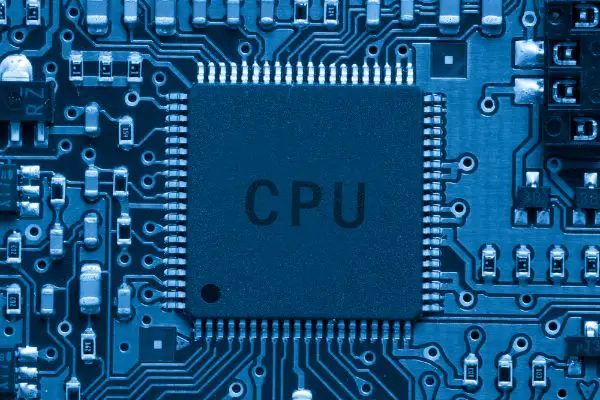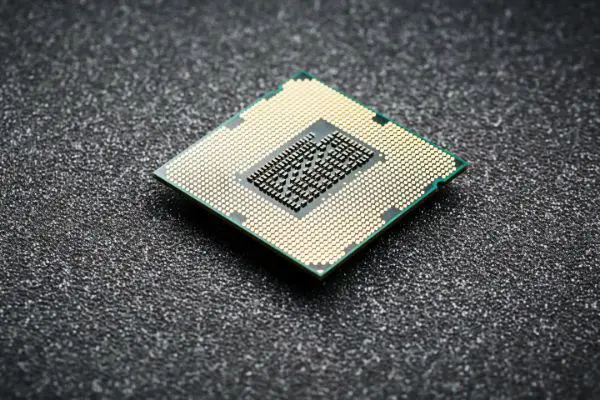Disclaimer: This post may contain affiliate links, meaning we get a small commission if you make a purchase through our links, at no cost to you. For more information, please visit our Disclaimer Page.
Central processing units have come a long way from the early days of the first computers. Interestingly, it’s mostly in the form or power levels that they have changed. Their basic functions have been fairly static even after decades of innovation.
The processor executes instructions that allow a desktop laptop, or any other form of computer to do its job. It performs logic functions or basic arithmetic, and controls operations based on the programs that it is executing.
Some users like to purchase older CPUs, and we will explore some of the common reasons as to why that might be. We’ll also get into whether it is really okay to buy such processors for your needs, if there are any situations where you might be better off not doing so, and things you might want to check before buying any used central processing units.
Table of Contents
Why Do Some People Buy Old CPUs?
Some hobbyists or enthusiasts might decide to buy old CPUs for several reasons. First, they could be looking to upgrade their systems without spending the full price on a brand new CPU.
Depending on how old their current system is, a different processor that is not new could still be a suitable upgrade at a fraction of what they might pay in other scenarios.
This gives them a way to get more power or speed for the system they have without buying a whole new rig.
Second, if they aren’t upgrading their own systems, some CPUs still have value in the legacy market. Plenty of people are looking for older parts for computers they are putting together.
Some people prefer the particular architecture in a specific model of processor that a specific brand might make.
Therefore, they will look for CPUs that have that architecture. Because some of these older CPUs can still remain popular today, there is good business in having these kinds of parts on hand to sell to interested parties.
Finally, it is possible that people like to restore old things to better conditions. This is more popular if you want to buy a vintage PC, but it is still a viable reason for anyone who likes to tinker with electronics.
They may purchase an old CPU to put it in a particular rig they are restoring. One reason for this is that processing units tend to hold their value pretty well over the years, and many models could be sought after by people who wish to refurbish particular systems.
Is It Okay To Buy a Used CPU?
There are always caveats to consider, but it is okay to buy a used CPU. One of the reasons it is seen as something that is okay by much of the tech community lies in how durable and robust processors tend to be.
For one thing, they do not have moving parts that could take damage. There is still some risk that an old CPU does not function properly, but a lack of moving parts can reduce this risk considerably.
Additionally, their robust natures mean that most processors are built to function for many years at normal levels. This means there is a good chance you are getting a perfectly serviceable part when you buy your processor used.
There are things to look out for, and we will cover those in a later section. However, the exacting standards to which processors are built, and the trusted brands that handle these processes, are just some of the main reasons why they tend to hold their value over the years.
In general, all you really need is a processor that does what you need it to do. If you are building a PC, or if you have one that needs this part, there might be some research you’ll have to do to make sure you get what you need.
It is a good idea to check the processor’s specs to ensure it can run at the speeds you want and handle the games or applications you plan on using regularly.
If you know what you want and make your purchases from a trusted source with reliable backing, there shouldn’t be too much risk involved for you.
Should I Get a Renewed or Refurbished CPU Instead?
There are used CPUs out there, but there are also refurbished ones. You may see some of these processors listed as renewed items, but the meaning is similar to how refurbished parts work.
In order to figure out which path might be best for your needs, we need to make the basic distinction between plain processors that are used and those that someone has decided to refurbish.
In most cases, a simple used processor will just be one that someone pulled out of their own system and put up on the market for sale.
Good sellers will give you the specs on the unit itself, and they will probably include a bit of information on how long they had the piece, how often it was in use, what they used it for, and how hard they ran it.
This data could be crucial to your final decision when making a purchase like this, particularly if they decided to overclock the CPU regularly.
You want something that is used for a cheaper price than you can get it new, but you also want to make sure that it can run for years on your own system.
Other people might choose to sell refurbished processors instead of used ones. In these cases, they’ve taken what is an already old piece of tech and done what they could to restore it to as close as new as possible.
You’re still not getting a brand new processor out of the box, but you are getting something that is supposed to run like it is close to new, and you should be getting it for a cheaper price than its mint counterpart.
That said, it is important to remember that refurbished can mean used, returned, and sold in working condition rather than something that has been repaired or restored. This might be especially true in the case of some processors that you come across.
As we mentioned, there would be very little to go into and fix when it comes to a CPU with no moving parts. Most processors are durable, and they are either working or not working.
There are one or two exceptions that we will cover, but it is possible that you’ll find renewed processors that are functionally similar to used ones.
What really matters with renewed or used parts like this is the price. Everything should be in good working order, so which one offers you the best price for your budget is what the primary consideration should be, at least in most cases.
Renewed or refurbished technology might carry more weight on other computer parts that people can physically repair in order to restore them. For most processors, you should be fine either way.
What Are Some Things To Look Out for in a Used CPU?
The nice thing about processors is how they perform important and complex tasks for the computer without being outwardly complex pieces of tech themselves. There is certainly a lot going on under the hood, but the outer shell is a hardy thing without much to it.
Therefore, you’ll usually get a processor that works as intended. However, there are still some things you should be aware of, and some problematic areas could crop up if you don’t know what to look for. Here are just a few of the main things to consider:
1. CPUs don’t tend to have moving parts, but they do have pins that could be bent. A bent pin can impede the processor’s function or cause it to stop working.
Before you buy, check to ensure that all pins look like they are in their proper places and show no defects.
2. Get information on how the previous owner may have overclocked the processor. This is one thing that can lead to a shortened lifespan for an otherwise robust product.
If they overclocked it regularly, it may not last as long or perform as well as you are expecting.
3. you won’t typically get a manufacturer’s warranty when you buy a used processor. As with any expensive technology you might purchase, some protection is a good idea.
With used CPUs, check to see if the individual reseller offers any good return window for testing or a warranty period. You won’t necessarily need to skip over any that do not, but it is a good idea to look for one first.
Conclusion
Processors are simple on the surface, but they are the powerhouse of almost everything a computer needs to do in the background. Because they tend to hold their values very well, they can be expensive. One way to offset this cost is to buy used CPUs. There is some risk here, but you can mitigate it using many of our tips above.


